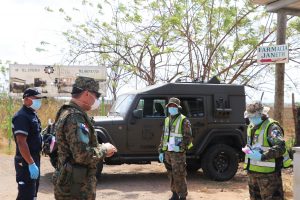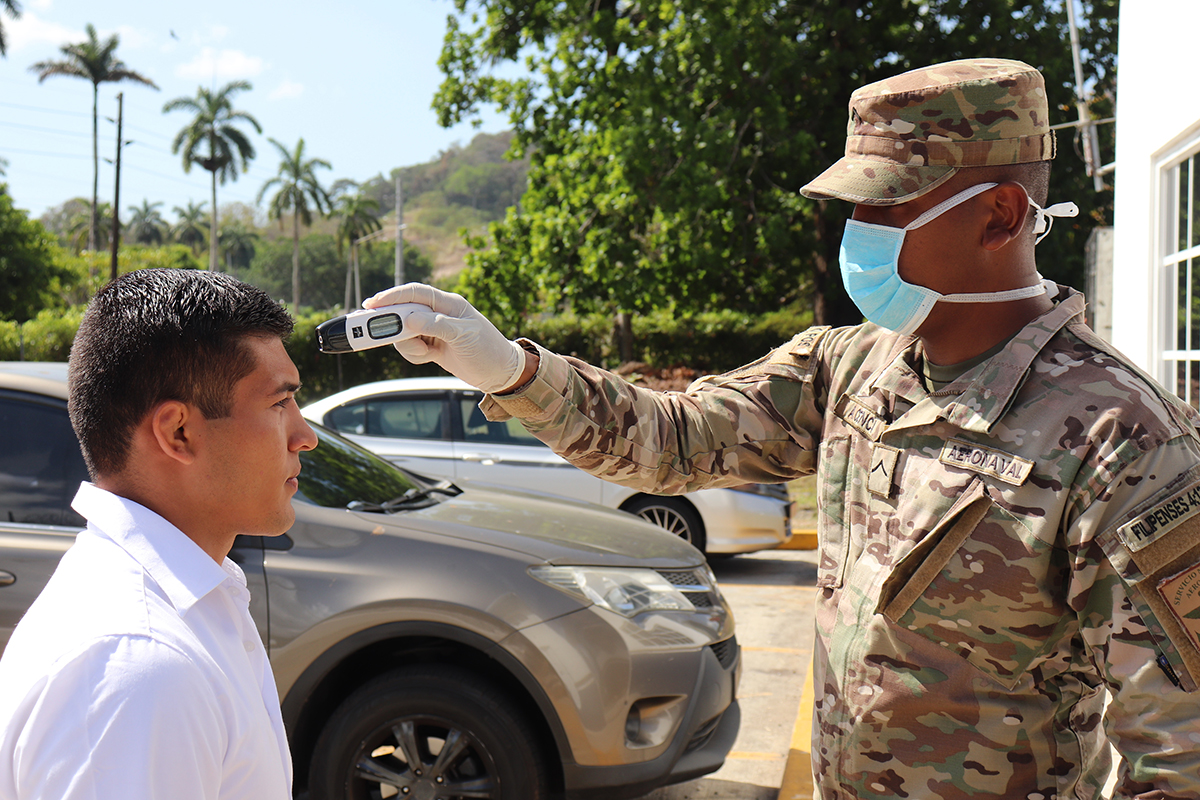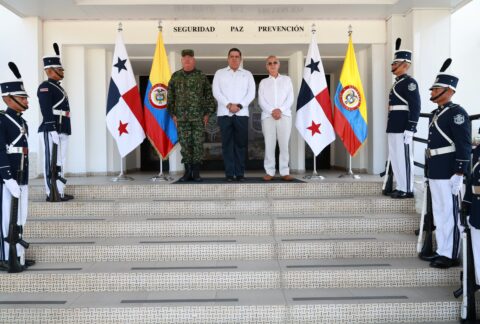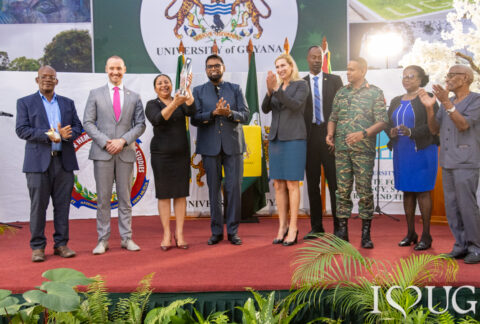About 5,000 service members of the Panamanian National Border Service (SENAFRONT, in Spanish) and National Air and Naval Service (SENAN, in Spanish) have joined the national action plan to confront the COVID-19 (coronavirus) pandemic and enforce executive orders related to the state of emergency declaration.
Both forces have assigned human resources and land and sea mobility equipment to minimize the spread of the spread throughout the national territory.
Among their new tasks, security forces enforce the curfew with patrols in the streets and on maritime routes, carry out disinfection and health check operations, communicate public health measures in the country’s remote areas, and conduct border controls. To fight the coronavirus, SENAFRONT says it has assigned 100 motorcycles, 56 patrol cars, eight buses to mobilize units, eight ambulances, and six boats in hard-to-reach areas, such as the Darién and Bocas del Toro provinces, as well as indigenous communities.

“Our institutional capabilities are 100 percent active, because we continue to conduct daily operations against organized crime, common crime, immigration, and citizen services, as well as the special attention we provide to deal with the COVID-19 crisis,” SENAFRONT told Diálogo in a statement.
On January 22, Panama activated the Emergency Health Operations Center, an interagency body, to monitor the coronavirus situation and to begin response readiness. On March 5, the government launched the COVID-19 Health Security Joint Task Force, which aims to stop the virus spread and includes SENAFRONT and SENAN.
To fulfill their new role, the security forces participated in a series of training sessions about COVID-19 organized by Panama’s Ministry of Health with advisers from the World Health Organization.
The Pan American Health Organization (PAHO) praised the Panamanian government’s rapid response. PAHO’s representative in the country, Gerardo Alfaro, said in an interview with the United Nations that Panama “has always been one step ahead.”
SENAFRONT elements have tightened the borders to halt the movement of illegal goods (such as drugs) or undocumented immigrants that may try to cross through porous regions, such as the Darién jungle, near the Colombian border. Security agents are leading health and migration checks for Panamanian indigenous people that harvest coffee in Costa Rica.
Agents are also assisting with epidemiological blockades, set up to restrict movement from one area to another in the provinces of Panamá, Chiriquí, Bocas del Toro, and Darién, taking people’s temperature and checking documentation. For its part, SENAN focuses its actions on the country’s coasts and islands.









